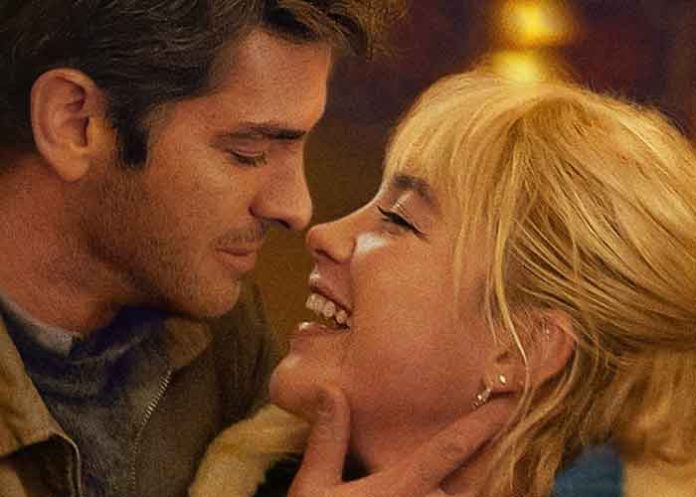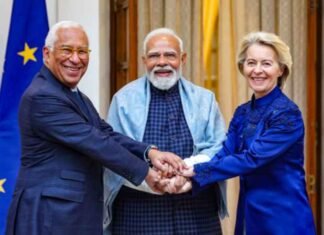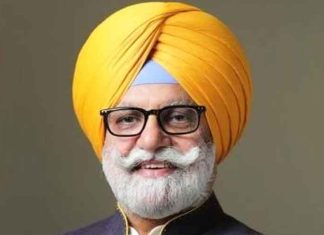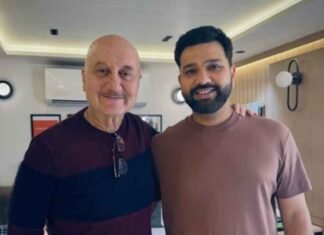Last month’s adaptation of Colleen Hoover’s bestseller ‘It Ends With Us’ surprised audiences with its heartfelt melodrama, and it seems like a resurgence of this genre is underway. Following closely on its heels is ‘We Live in Time’, which premiered at the Toronto Film Festival. This tender, smart, and emotionally engaging film has captured the hearts of audiences, much like ‘It Ends With Us’.
Both films have tapped into an underserved audience craving stories driven by deep emotional connections, and ‘We Live in Time’ delivers a blend of romance, tragedy, and life’s toughest decisions.
A Nod to Classic Romcoms With a Darker Twist
At its core, ‘We Live in Time’ has the feel of a classic Working Title romantic comedy, reminiscent of an era when the genre was beloved for its charm. However, unlike the lighter fare of earlier romcoms, this film tackles deeper, more complex themes.
The story revolves around a pair of charismatic Londoners, portrayed by Florence Pugh and Andrew Garfield, who fall in love but must confront the realities of late-stage cancer. This twist pushes the film into territory that could easily have become clichéd, but director John Crowley, known for his success with ‘Brooklyn’ (2015), breathes new life into this narrative.
A Heartfelt Story of Love, Loss, and Life’s Difficult Choices
The chemistry between Pugh and Garfield is undeniable and adds to the film’s emotional depth. Their performances are the heart and soul of ‘We Live in Time’, and it’s hard to imagine the film being as effective without them.
Florence Pugh shines as Almut, a chef on the verge of opening her own restaurant when she meets Tobias, played by Andrew Garfield. Their fateful encounter—Almut accidentally hits Tobias with her car on the night he signs his divorce papers—kicks off a romance that is as unexpected as it is intense.
A Time-Jumping Structure That Deepens the Story
The film’s non-linear structure, moving back and forth in time, adds layers to their relationship, showing us the progression from their passionate beginnings to the struggles they face later on.
We see their joyful courtship, complete with moments of spontaneous romance, juxtaposed against the challenges of an unplanned pregnancy and the devastating diagnosis of Almut’s cancer. Despite the familiar themes, the script by Nick Payne makes these moments feel fresh, avoiding the typical pitfalls of melodrama.
The Balance Between Romance and Tragedy
One of the film’s greatest strengths is its ability to balance the lighter, more romantic moments with the weight of impending tragedy. The highs—such as lazy weekends filled with love—are contrasted with the difficult days of illness and life-altering decisions.
While the film’s time-jumping structure works for the most part, it does dilute the emotional buildup typically expected in the third act. Instead of delivering the gut-wrenching climax many viewers might anticipate, the scattered emotional scenes leave the ending feeling slightly anti-climactic.
A Woman’s Fight for More Than Just Family
Beyond the romance and heartbreak, ‘We Live in Time’ delves into the inner conflict many women face: the desire to be remembered for their professional achievements rather than solely for their roles as partners or mothers.
Almut’s story reflects this as she secretly competes in a prestigious cooking competition, driven by a need to prove herself as an exceptional chef. This narrative thread adds depth to her character, highlighting the struggle to balance personal ambition with familial expectations. Pugh brings a believable intensity to the role, showcasing her character’s seriousness and dedication to her craft.
Pugh and Garfield’s Stellar Performances Steal the Show
Pugh and Garfield are a powerhouse duo, and their performances elevate ‘We Live in Time’ from a standard romantic drama to something truly special. Their ease with both comedy and drama allows for a seamless blend of lighthearted moments and intense emotional beats. Pugh, in particular, stands out with a role that allows her to display both warmth and vulnerability, making her character’s journey all the more impactful.
As the showier of the two roles, Almut’s story demands both joy and sorrow, and Pugh delivers with astonishing range, proving once again that she’s one of the most versatile young actors working today.
An Intimate Focus on Two Characters
The film takes a daring approach by narrowing its focus almost entirely on Almut and Tobias. Supporting characters are present, but their roles are minimal, allowing the audience to be fully immersed in the world these two have created.
This tight focus on the leads ensures that every emotional beat is amplified, whether it’s the joy of falling in love or the heartbreak of facing an uncertain future together.
A Throwback to Big, Emotionally Driven Dramas
In a cinematic landscape often dominated by action and spectacle, ‘We Live in Time’ feels like a refreshing throwback to an era of big, emotionally driven romantic dramas. It’s a film that isn’t afraid to wear its heart on its sleeve, delivering the kind of full-bodied romance that makes us swoon while also exploring life’s harshest realities.
While its traditional approach may not make it a frontrunner for awards season, its sincerity and emotional depth make it a standout in its own right.
Final Thoughts: A Charming, Emotional Journey
*We Live in Time* is a beautifully crafted film that offers a delicate balance of romance and tragedy. Anchored by outstanding performances from Florence Pugh and Andrew Garfield, it’s a film that will resonate with anyone who has experienced the highs and lows of love and loss. While it may not reinvent the wheel, its honesty and emotional core make it an engaging, heartfelt journey that will leave audiences thinking long after the credits roll.

































































































